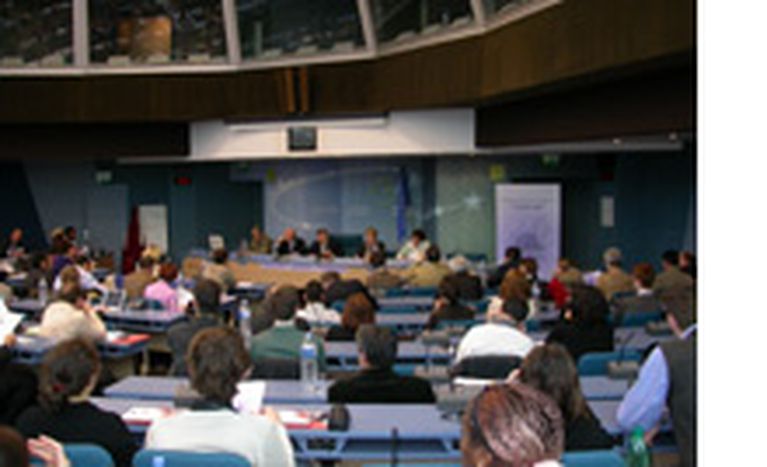
Looking for a cure for the European crisis
Published on
Translation by:
 eleanor forshaw
eleanor forshaw
Europe is working to find a lasting cure for the crisis.
Where is Europe heading? With France and the Netherlands blocking the Constitution, and with the reluctant agreement on the European budget, it is clear that Europe is traversing a crisis. It is due, in part, to the return of national interests, which could be defined as “new nationalism”. But is this just a seasonal virus, or is there a more serious underlying disease? Cafebabel.com met up with representatives from organisations across Europe to see whether they are heading the right way to find a cure.
The antibodies are coming into play
When a disease first becomes active, antibodies are immediately triggered. Thus, last December, NGOs and other associations and authorities set up two separate events. Firstly, the federalists got civilians involved on 3 and 4 December, 2005, in Genoa to discuss the European project. “The idea of a civilians’ constitution was launched”, says Samuele Pii, president of the Young European Federalists movement. “It would concern them directly as well as European and national parliamentarians”. Secondly, on 17 December in Strasbourg, the European Civic Forum was set up, a network of NGOs united around the idea that a participative democracy would be the way towards “popular and civic approval” of the European Union. But is this enough? Let us get a more specific diagnosis of the suffering European ideal.
Going round in circles
“At least the European leaders have reached an agreement on the budget!” says Przemek Jaron from Warsaw, member of the Polish Robert Schuman Foundation, a very active organisation in sensitising citizens to the European project. He explains that the European Constitution was not seen as a priority for European citizens, even if, “after the negative response from the French, the number of people against the Constitution rose sharply”. Increased attention to the European crisis meant that the budget also became an issue, continues Jaron, because “with the financial agreement, governments, local authorities and entrepreneurs now knew how much money would be coming in and how to plan better for their future”. For new members, structural funds represent a real advantage that can greatly improve the standard of living, even if “Polish farmers know that they will have to work hard and that the benefits will not be immediate. All they want is to be treated in the same way as the farmers in other European countries because, every so often, they believe that will not happen”. The Belgian Claude Fischer, Secretary General to the European association Confrontations Europe, maintains that “Europe has been badly explained by governments and the Union has been deprived of a policy for solidarity and development”.
“Has a crisis-free Europe ever existed?”
Mary Mc Phail is the Secretary General to European Women’s Lobby, an NGO that looks after women’s rights. She does not think that the failure of the Constitution is purely down to nationalistic reasons. She believes it is also due to “different internal political situations related to the anxiety generated by external factors, which are in turn linked to globalisation”.
“Has a crisis-free Europe ever existed?” asks Martin T. Haberger, theatre actor and founder of the project Euroliteratour, which looks at increasing cultural exchanges between Europeans. “With the development of a civic European society, we are living in a revolutionary era. In principle, it was only for economic reasons. Then, student exchanges and city twinning led to a cultural Europe”. The tragic experience of the Second World War is now only a bad memory and “to understand each other, we don’t need to decide on a lingua franca or anything like that, we need to invest in communication – not in boring pamphlets but in culture”. Otherwise, “Europe will not find a place in the hearts and the minds of Europeans, despite all the efforts from governments”.
Samuele Pii remembers that, after spending the last few days before the referendum in France, he expected the negative result. He wants to specify that, despite the current crisis, Europeans are still optimistic. He believes the fundamental idea of a Constitution is not dead yet. “It is the project of a Constitution for European governance that is dead. Even though this attempt was commendable, we now have the possibility for a citizens’ Europe where a federal constitution would be a better choice”. To overcome the crisis, he recommends “confronting the problems differently, from a more international point of view”. And to get out of the current impasse in the European project, he suggests “a new Constitution submitted to a European referendum, coinciding with the parliamentary elections of 2009”.
Political fantasy? Maybe. But the disease remains, and, for the moment at least, the doctors are still scratching their heads.
The following people contributed to this article: Piotr Kaczynski in Warsaw, Dionizas Bajarunas in Vilnius, Miriam Rodriguez in Barcelona, Vicki Bryan in London. Interviews with Claude Fischer and Mary Mc Phail were conducted by Vanessa Witkowski in Brussels.
Translated from Crisi Ue, c’è chi cerca un vaccino


